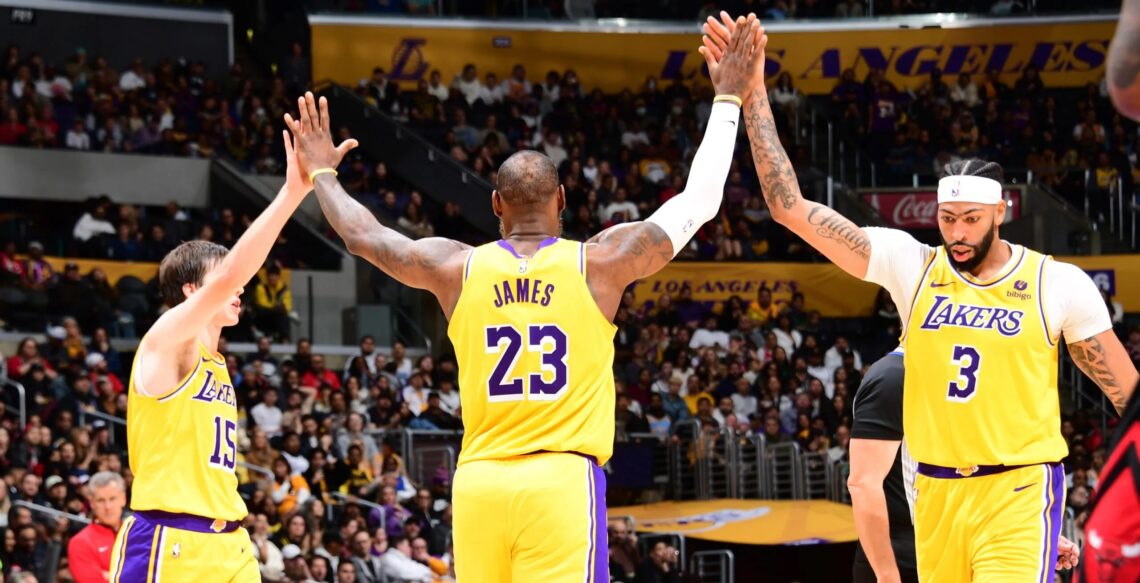The rivalry between the Chicago Bulls and the Los Angeles Lakers is one of the most storied in the history of the NBA. From Michael Jordan’s iconic battles with Magic Johnson to LeBron James’s duels with today’s Bulls roster, this matchup has provided basketball fans with countless memorable moments. The latest clash between these two powerhouse teams was no exception, with both sides showcasing stellar performances. In this article, we will analyze the Chicago Bulls vs Lakers match player stats, breaking down the key contributions, standout performances, and what these numbers mean for the future of these two teams.
The Rivalry: Chicago Bulls and Los Angeles Lakers
The Bulls and Lakers are two of the most successful franchises in NBA history. Together, they account for 23 championships, with the Lakers holding 17 and the Bulls claiming 6 during their golden era led by Michael Jordan. Their matchups often transcend the game, becoming cultural moments that unite fans globally. This game was no different, offering high-intensity basketball and moments of individual brilliance.
Both teams entered the game with much at stake. The Lakers were looking to solidify their playoff position, while the Bulls aimed to strengthen their standing in the Eastern Conference. Let’s dive into the numbers to see how the game unfolded.
Key Match Statistics
Analyzing the Chicago Bulls vs Lakers match player stats reveals critical insights into how the game was played:
- Final Score: Lakers 112 – Bulls 108
- Field Goal Percentage:
- Bulls: 46%
- Lakers: 49%
- Three-Point Success Rate:
- Bulls: 38% (11/29)
- Lakers: 40% (12/30)
- Rebounds:
- Bulls: 44
- Lakers: 47
- Assists:
- Bulls: 25
- Lakers: 28
- Turnovers:
- Bulls: 12
- Lakers: 10
These stats highlight the close nature of the game, with both teams evenly matched in most categories. The slight edge in shooting efficiency and rebounding ultimately helped the Lakers clinch the victory.
Player Performance Breakdown
Chicago Bulls Key Players
- Zach LaVine:
- Points: 32
- Assists: 6
- Rebounds: 5
- Performance: LaVine’s scoring ability was on full display, especially in the second half, where he sank critical three-pointers to keep the Bulls in contention. His explosive drives and perimeter shooting showcased why he’s one of the premier scorers in the league.
- DeMar DeRozan:
- Points: 28
- Assists: 5
- Rebounds: 8
- Performance: DeRozan’s mid-range game was unstoppable, and his ability to draw fouls gave the Bulls crucial opportunities to score from the free-throw line. His leadership on the court was evident as he orchestrated the offense.
- Nikola Vučević:
- Points: 18
- Rebounds: 12
- Assists: 3
- Performance: Vučević’s double-double highlighted his importance as a versatile big man. His rebounding kept the Bulls competitive on the boards, and his ability to stretch the floor added a unique dynamic to their offense.
Los Angeles Lakers Key Players
- LeBron James:
- Points: 34
- Assists: 8
- Rebounds: 10
- Performance: LeBron’s triple-double performance was the cornerstone of the Lakers’ success. His ability to control the game, whether through scoring, facilitating, or rebounding, once again proved why he is one of the greatest players of all time.
- Anthony Davis:
- Points: 27
- Rebounds: 15
- Blocks: 3
- Performance: Davis dominated in the paint, both offensively and defensively. His shot-blocking and ability to alter opponents’ shots gave the Lakers a defensive edge.
- Austin Reaves:
- Points: 15
- Assists: 7
- Performance: Reaves’ clutch plays in the fourth quarter, including critical free throws and timely three-pointers, were instrumental in the Lakers’ victory. His performance underscored the value of role players in tight games.
Head-to-Head Comparisons
Offensive Output
The Lakers had a slight edge in shooting efficiency, converting 49% of their field goals compared to the Bulls’ 46%. This difference, though small, proved crucial in a tightly contested game. LeBron James and Anthony Davis led the way with their scoring prowess, while Zach LaVine and DeMar DeRozan carried the offensive load for the Bulls.
Rebounding Battle
The Lakers won the rebounding battle 47-44, with Anthony Davis leading all players in this category. The ability to secure defensive rebounds and limit the Bulls’ second-chance opportunities played a significant role in the Lakers’ victory.
Defensive Contributions
Both teams showcased solid defensive efforts, but the Lakers had the edge thanks to Anthony Davis’s shot-blocking and the team’s ability to force turnovers. The Bulls relied on defensive rotations to create fast-break opportunities, which kept the game close.
Bench Impact
The Lakers’ bench outperformed the Bulls, with Austin Reaves and Rui Hachimura combining for 25 points. This depth allowed the Lakers to maintain their intensity throughout the game. The Bulls’ bench struggled to match this output, placing more pressure on their starters.
Strategic Insights
What the Bulls Did Well
- Mid-Range Dominance: DeRozan’s mid-range scoring was a key factor in the Bulls’ offensive success.
- Perimeter Shooting: The Bulls’ 38% success rate from beyond the arc kept them competitive.
- Ball Movement: With 25 assists, the Bulls showcased their ability to create open shots through team play.
What the Lakers Did Well
- Defensive Presence: Davis’s ability to dominate defensively set the tone for the Lakers.
- Clutch Play: The Lakers excelled in crunch time, with key contributions from LeBron and Reaves.
- Rebounding: Winning the rebounding battle provided additional possessions, which proved decisive.
The Significance of This Game
The Chicago Bulls vs Lakers match player stats offer valuable insights into the strengths and weaknesses of both teams. For the Lakers, this win strengthens their playoff hopes and highlights their ability to close out tight games. For the Bulls, the narrow loss underscores their resilience and potential but also points to areas needing improvement, such as bench scoring and interior defense.






